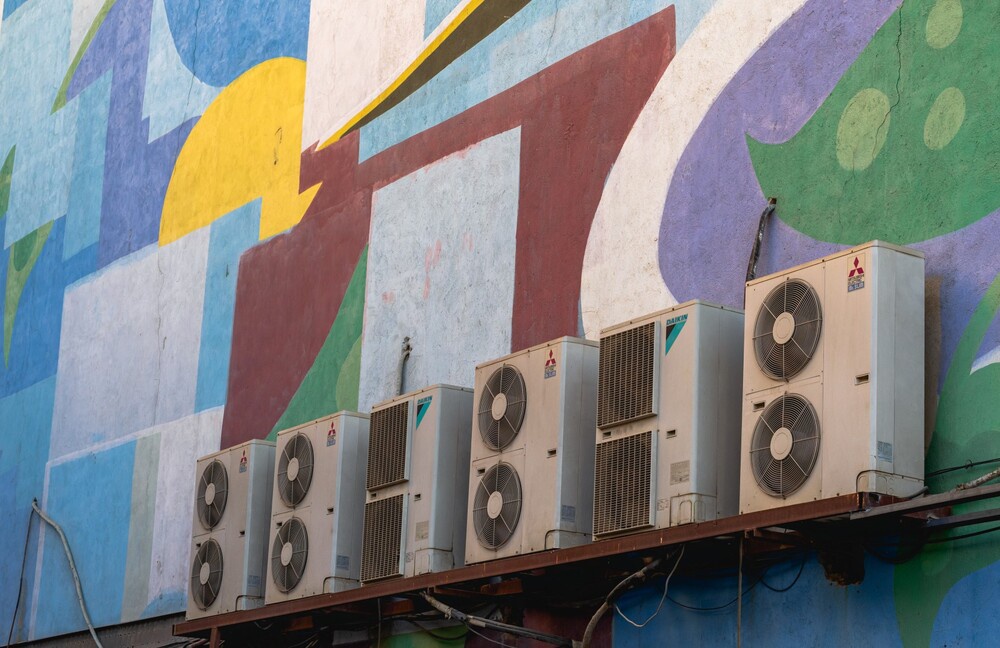Air conditioning replacement is one of the most important home improvements you can make. Not only will it make your home cooler in the summer, but it can add substantial value to your property and give you peace of mind that your heating and cooling system is both energy-efficient and safe for your family. Before you begin the process, however, consider these seven tips for choosing the right air conditioning replacement system for your home and personal needs.
1) Consider your home’s layout when choosing an AC system.
When it comes to selecting a replacement air conditioning system, you’ll want to make sure it is the right fit for your home. That means considering the layout of your house, and the specific needs of each room.
For example, if you have a larger house, or multiple floors, you may need to look at more powerful systems. On the other hand, if you have smaller spaces, such as studios or apartments, a more compact system may be the best fit.
When it comes to the size of your system, bigger doesn’t always mean better. It’s important to get an AC system that is properly sized for your home. A too-large system may use more energy than necessary, while a too-small system won’t provide enough cooling. An experienced HVAC technician can help you determine the right size for your home.
You should also consider the type of AC unit that will best suit your needs. Central air conditioning systems tend to be the most efficient option and are ideal for larger homes, but window or wall units may be better suited to single rooms or small areas.
Once you know what type and size of system you need, you can then start shopping around for the best deal. Make sure to read online reviews and check consumer ratings before making a purchase decision.
By taking the time to consider your home’s layout and the specific needs of each room, you can ensure that you’re installing the best air conditioning replacement system for your home.
2) Get a system that’s the right size for your home.
When it comes to replacing your air conditioning system, the size of the unit matters. Choosing an air conditioning system that’s too small won’t provide adequate cooling, while a unit that’s too large will be inefficient and costly to run. To ensure you’re getting the right size for your home, it’s important to consider factors such as the size of your home, the level of insulation, how many people live in your home and the number of windows in each room.
A professional HVAC contractor can help you determine the right size unit for your home. The contractor will take accurate measurements and analyze the information to determine the optimal cooling load needed. Once the cooling load is determined, they can then advise you on the best air conditioning system for your needs.
3) Choose an energy-efficient system.
When shopping for a new air conditioning system, it's important to take energy efficiency into consideration. An energy-efficient system can significantly lower your electricity bills, as well as reduce the strain on the environment. The most efficient systems available have SEER (seasonal energy efficiency ratio) ratings of 16 or higher, which are much higher than the minimum ratings of 13 mandated by the government.
When evaluating the SEER rating, you should also look for systems that have the Energy Star label. This means the system meets the highest standards of efficiency and is rated among the best in its class. Energy Star certified systems usually cost a little more upfront, but they can save you money in the long run with lower monthly utility bills.
It's also important to research any available tax credits or other incentives available in your area. These can help make an energy-efficient system more affordable, so be sure to check with your local government and utility provider to see what’s available.
4) Consider your budget.
When it comes to replacing your air conditioning system, one of the first and most important considerations is your budget. While you certainly want to find a reliable, energy-efficient system, you also need to make sure you’re not overspending.
Start by researching different types of systems available on the market. You can get a good idea of the features and price ranges for each type of system. Once you’ve narrowed it down, use a calculator to determine how much the system will cost you in energy costs over the next few years.
This will give you an idea of the total cost of ownership over the life of the system.
Take into account any available tax credits or rebates as well. If you install an energy-efficient system, you may qualify for state or federal incentives that can lower your cost significantly.
Once you’ve determined your budget, you can begin comparing systems and evaluating which type best meets your needs.


No comments yet